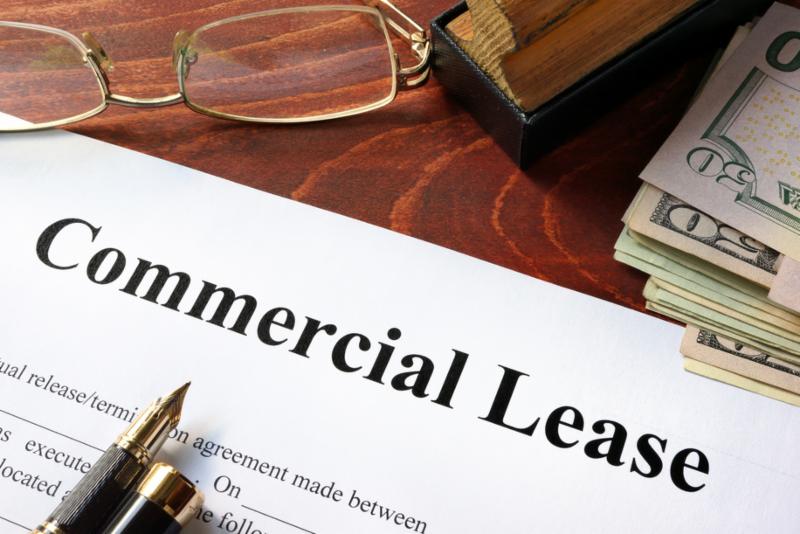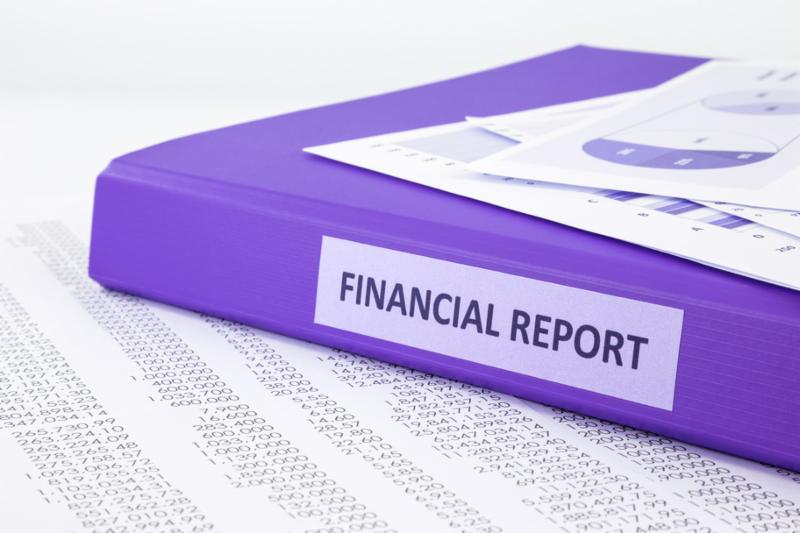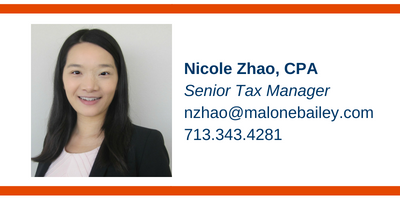We are pleased to release MaloneBailey's July 2018 issue of The Crunch, our newsletter highlighting recent accounting, regulatory and tax updates. This special edition of our newsletter highlights FASB updates that are scheduled to go into effect for periods beginning December 15, 2018, as well as our recent SEC, FASB and tax updates. Please note that the updates provided in this newsletter are not a comprehensive list.
We encourage you to visit the SEC, FASB and IRS websites for more information as well as a complete list of updated rules, regulations and proposals.
We invite you to contact us should you have any questions about the information provided in this issue.
We invite you to visit our website to review archived versions of this newsletter containing past accounting, regulatory and tax updates.
|
What's the Crunch?
Featured Podcast
FASB Update Look Ahead - Preparing for 2019
F
ASB Updates Going Into Effect in 2019
Accounting and Regulatory Updates
Recent FASB Updates & Proposals
Recent SEC Updates & Proposals
|
|
Reclassification of Certain Tax Effects from Accumulated Other Comprehensive Income - ASU 2018-02

Summary -
These amendments provide financial statement preparers with an option to reclassify stranded taxeffects within AOCI to retained earnings in each period in which the effect of the change in the U.S. federal corporate income tax rate in the Tax Cuts and Jobs Act (or portion thereof) is recorded.
The ASU requires financial statement preparers to disclose:
- A description of the accounting policy for releasing income tax effects from AOCI;
- Whether they elect to reclassify the stranded income tax effects from the Tax Cuts and Jobs Act; and
- Information about the other income tax effects that are reclassified.
The amendments affect any organization that is required to apply the provisions of Topic 220, Income Statement-Reporting Comprehensive Income, and has items of other comprehensive income for which the related tax effects are presented in other comprehensive income as required by GAAP.
Earliest Effective Annual period (years beginning or ending after) December 15, 2018.
For more information, click here.
© 2018 CCH Incorporated and/or its affiliates. All rights reserved. Used with permission.
|
Land Easement Practical Expedient for Transition to Topic 842 - ASU 2018-01

Summary
- Effective with ASU 2016-02, as amended. The amendments in ASU 2018-01:
- Provide an optional transition practical expedient for the adoption of ASU 2016-02 that, if elected, would not require an organization to reconsider their accounting for existing land easements that are not currently accounted for under the old leases standard; and
- Clarify that new or modified land easements should be evaluated under ASU 2016-02, once an entity has adopted the new standard.
Earliest Effective Annual period (years beginning or ending after) December 15, 2018.
For more information, click here.
© 2018 CCH Incorporated and/or its affiliates. All rights reserved. Used with permission.
|
Codification Improvements to Topic 995, US Steamship Entities: Elimination of Topic 995-ASU 2017-15

Summary
-
An entity should apply the amendments on a modified retrospective basis through a cumulative-effect adjustment directly to retained earnings as of the beginning of the period of adoption. Additionally, in the period of adoption, an entity should provide disclosures about a change in accounting principle. Entities also should disclose the amounts and types of temporary differences for which a deferred tax liability had not previously been recognized.
The amendments in ASU No. 2017-15 to supersede Topic 995, U.S. Steamship Entities, because its guidance is no longer relevant. FASB Statement No. 109, Accounting for Income Taxes, provided an option in the reporting of deferred taxes for steamship entities that had statutory reserve deposits that were made before December 15, 1992. The Department of Transportation program from which these statutory reserve deposits originate and the Internal Revenue Service (IRS) provide a 25-year time frame in which to use the reserves or forfeit the tax deferral. The FASB decided that all steamship entities with statutory reserve funds should be reporting all deferred taxes in accordance with Topic 740, Income Taxes. The guidance in Topic 995 on transitioning to the requirements of Topic 740 is no longer relevant because statutory funds deposited on or before December 15, 1992, have reached the 25-year limit.
Earliest Effective Annual period (years beginning or ending after) December 15, 2018.
For more information, click here.
© 2018 CCH Incorporated and/or its affiliates. All rights reserved. Used with permission.
|
Targeted Improvements to Accounting for Hedging Activities - ASU 2017-12


Summary
-
These amendments refine and expand hedge accounting for both financial (e.g., interest rate)
an
d
commodity risks. Its provisions create more transparency around how economic results are presented, both on the face of the financial statements and in the footnotes. It also makes certain targeted improvements to simplify the application of hedge accounting guidance.
Earliest Effective Annual period (years beginning or ending after) December 15, 2018.
For more information, click here.
© 2018 CCH Incorporated and/or its affiliates. All rights reserved. Used with permission.
|
(Part I) Accounting for Certain Financial Instruments with Down Round Features, (Part II) Replacement of the Indefinite Deferral for Mandatorily Redeemable Financial Instruments of Certain Nonpublic Entities and Certain Mandatorily Redeemable Noncontrolling Interests with a Scope Exception - ASU 2017-11

Summary -
The amendments require companies to disregard the down round feature when assessing whether the instrument is indexed to its own stock, for purposes of determining liability or equity classification. Companies that provide earnings per share (EPS) data will adjust their basic EPS calculation for the effect of the feature when triggered and will also recognize the effect of the trigger within equity.
The amendments also address navigational concerns within the FASB Accounting Standards Codification® related to an indefinite deferral available to private companies with mandatorily redeemable financial instruments and certain noncontrolling interests, one that created significant "pending content" in the Codification.
Earliest Effective Annual period (years beginning or ending after) December 15, 2018.
For more information, click here.
© 2018 CCH Incorporated and/or its affiliates. All rights reserved. Used with permission.
|
Premium Ammoritzation on Purchased Callable Debt Securities - ASU 2017-08

Summary -
The amendments shorten the amortization period for certain callable debt securities held at a premium. Specifically, the amendments require the premium to be amortized to the earliest call date. The amendments do not require an accounting change for securities held at a discount; the discount continues to be amortized to maturity.
Earliest Effective Annual period (years beginning or ending after) December 15, 2018.
For more information, click here.
© 2018 CCH Incorporated and/or its affiliates. All rights reserved. Used with permission.
|
Employee Benefit Plan Master Trust Reporting - ASU 2017-06

Summary -
Among other things, the amendments require a plan's interest in that master trust and any change in that interest to be presented in separate line items in the statement of net assets available for benefits and in the statement of changes in net assets available for benefits, respectively.
The amendments also remove the requirement to disclose the percentage interest in the master trust for plans with divided interests and require that all plans disclose the dollar amount of their interest in each of those general types of investments.
The amendments require all plans to disclose: (a) their master trust's other asset and liability balances; and (b) the dollar amount of the plan's interest in each of those balances.
Lastly, the amendments eliminate redundant investment disclosures (e.g., those required by Topics 815 and 820) relating to 401(h) account assets.
Earliest Effective Annual period (years beginning or ending after) December 15, 2018.
For more information, click here.
© 2018 CCH Incorporated and/or its affiliates. All rights reserved. Used with permission.
|
Leases - ASU 2016-02

Summary -
Lessees (for capital and operating leases) and lessors (for sales-type, direct financing, and operating leases) must apply a modified retrospective transition approach for leases existing at, or entered into after, the beginning of the earliest comparative period presented in the financial statements.

Among other things, in the amendments in ASU 2016-02, lessees will be required to recognize the following for all leases (with the exception of short-term leases) at the commencement date:
- A lease liability, which is a lessee's obligation to make lease payments arising from a lease, measured on a discounted basis; and
A right-of-use asset, which is an asset that represents the lessee's right to use, or control the use of, a specified asset for the lease term.
Under the new guidance, lessor accounting is largely unchanged. Certain targeted improvements were made to align, where necessary, lessor accounting with the lessee accounting model and Topic 606, Revenue from Contracts with Customers.
Earliest Effective Annual period (years beginning or ending after)
December 15, 2018.
For more information, click here.
© 2018 CCH Incorporated and/or its affiliates. All rights reserved. Used with permission.
|
Consolidation - FASB Discusses Targeted Improvements

Summary
- The FASB met on May 16, 2018, and discussed the feedback received on its proposed Accounting Standards Update (ASU), Consolidation (Topic 810): Targeted Improvements to Related Party Guidance for Variable Interest Entities. The FASB reached a number of decisions, including to:
- Confirm its decision to allow a private company (reporting entity) to elect an accounting alternative through an accounting policy election to not apply variable interest entity (VIE) guidance to legal entities under common control if both the parent and the legal entity being evaluated for consolidation are not public business entities.
- Clarify and provide illustrative guidance on how control is established for purposes of applying the private company accounting alternative.
- Align the effective date and transition guidance for the private company accounting alternative with the effective date and transition guidance in ASU No. 2016-03, Intangibles-Goodwill and Other (Topic 350), Business Combinations (Topic 805), Consolidation (Topic 810), Derivatives and Hedging (Topic 815): Effective Date and Transition Guidance.
- Confirm its decision to require indirect interests held through related parties in common control arrangements to be considered on a proportional basis when determining whether fees paid to decision makers and service providers are variable interests (decision-making fee guidance).
- Not make any amendments to the VIE related party guidance for determining the primary beneficiary of a VIE.
For more information, click here.
© 2018 CCH Incorporated and/or its affiliates. All rights reserved. Used with permission.
|
EITF Flash Report - EITF Reaches Final Consensus on Cloud Computing Arrangements

Summary
- The EITF held a meeting on June 7, 2018, and discussed
issue No.s 17-A, 18-A
an
d 18-B.
The EITF members voted to issue a
final consensus on
Issue 17-A.
For complete EITF meeting Notes, click here.
© 2018 CCH Incorporated and/or its affiliates. All rights reserved. Used with permission.
|
Insurance - FASB Discusses Targeted Improvements to Accounting for Long-Term Duration Contracts

Summary
- The FASB decided to revise the modified retrospective transition method discount rate whereby as of the beginning of the earliest period presented (that is, the transition date) an insurance entity would retain the discount rate assumption for purposes of calculating net premiums and interest accretion. For balance sheet purposes, the liability would be remeasured at the current upper-medium grade fixed-income instrument yield, resulting in an adjustment to opening accumulated other comprehensive income at the transition date.
The FASB decided that the effective date of the amendments in the final Update should be as follows:
- For public business entities, the amendments will be effective for fiscal years, and interim periods within those fiscal years, beginning after December 15, 2020.
- For all other entities, the amendments will be effective for fiscal years beginning after December 15, 2021, and interim periods within fiscal years beginning after December 15, 2022.
For more information, click here.
© 2018 CCH Incorporated and/or its affiliates. All rights reserved. Used with permission.
|
Technical Amendments to Rules of Practice and Rules of Organization; Conduct and Ethics; and Information and Requests - Release No. 34-83325

Summary
- The SEC has issued a Final Rule, Technical Amendments to Rules of Practice and
 Rules
of
Organization; Conduct and Ethics; and
Information and Requests. This document includes technical amendments to certain rules of organization and rules of practice to indicate that SEC materials will no longer be compiled and published as the "SEC Docket" ("SEC Docket" or "Docket"), but will continue to be
available on the SEC public website.
Rules
of
Organization; Conduct and Ethics; and
Information and Requests. This document includes technical amendments to certain rules of organization and rules of practice to indicate that SEC materials will no longer be compiled and published as the "SEC Docket" ("SEC Docket" or "Docket"), but will continue to be
available on the SEC public website.
This final rule became effective June 1, 2018.
For more information, click here.
© 2018 CCH Incorporated and/or its affiliates. All rights reserved. Used with permission.
|
Optional Internet Availability of Investment Company Shareholder Reports - Release No. 33-10506

Summary
- The SEC adopted new rule 30e-3 under the Investment Company Act of 1940. Subject to conditions, new rule 30e-3 will provide certain registered investment companies with an optional method to satisfy their obligations to transmit shareholder reports by making such reports and other materials accessible at a website address specified in a notice to investors. The SEC also adopted amendments to rule 498 under the Securities Act of 1933. The new rule incorporates a set of protections so that investors who prefer to receive reports in paper will continue to receive them in that format.
This final rule is generally effective January 1, 2019, with certain exceptions specified within the rule.
For more information, click here.
© 2018 CCH Incorporated and/or its affiliates. All rights reserved. Used with permission.
|
Summary
- SEC Commissioner Kara M. Stein recently discussed the important role rules in the investment markets play in building wealth. Stein highlighted uncertainties in investment markets given the large number of choices of investments. Stein indicated that the rules "govern investment markets are designed to address this uncertainty. They provide a framework for trust so that businesses can grow and savings aren't either tucked under mattresses or lost to the dishonest." Topics discussed by Stein included:
- More choices for investment as markets develop further;
- The important impact technology is having on investment markets; and
- The risk associated with more complex investment products.
For more information, click here.
© 2018 CCH Incorporated and/or its affiliates. All rights reserved. Used with permission.
|
Summary
- SEC Commissioner Robert J. Jackson, Jr. recently spoke about concerns he has with corporatestock buybacks. Jackson indicated that "there is clear
evidence that a substantial number of corporate executives today use buybacks as a chance to cash out the shares of the company they received as executive pay." Jackson urged his fellow SEC Commissioners to update the agency's rules to limit
executives from using stock buybacks to cash out from America's companies.
Topics discussed by Jackson included:
- Stock buybacks and executive pay;
- How executives use buybacks to cash out; and
- A path forward to address the practice of executives using buybacks as a chance to sell their shares.
For more information, click here.
© 2018 CCH Incorporated and/or its affiliates. All rights reserved. Used with permission.
|

Summary
- SEC Chief Accountant Wesley Bricker recently spoke about the importance of financial reporting as a cornerstone on which the process of capital allocation is built. Bricker indicated that good "accounting and auditing may not readily grab the general public's attention, but they are essential to our livelihoods."
For highlights, click here.
© 2018 CCH Incorporated and/or its affiliates. All rights reserved. Used with permission.
|
Summary
- SEC Deputy Chief Accountant Sagar Teotia recently discussed the financial reporting implications of the Tax Cuts and Jobs Act (the Act) and also provided an update on the implementation efforts associated with new GAAP standards.
Teotia discussed the SEC's issuance of Staff Accounting Bulletin (SAB) No. 118 as a result of the Act signed into law at the end of 2017.
Teotia also provided an update on implementation efforts associated with new accounting standards on revenue recognition, leases, and credit losses.
For highlights, click here.
© 2018 CCH Incorporated and/or its affiliates. All rights reserved. Used with permission.
|
Proposed Revisions to Prohibitions and Restrictions on Proprietary Trading and Certain Interests in, and Relationships with, Hedge Funds and Private Equity Funds - Release No. BHCA-3

Summary
- The SEC has issued for public comment Proposed Revisions to Prohibitions and Restrictions on Proprietary Trading and Certain Interests in, and Relationships with, Hedge Funds and Private Equity Funds. This proposal would amend the regulations implementing section 13 of the Bank Holding Company Act. Section 13 contains certain restrictions on the ability of a banking entity and nonbank financial company supervised by the Board of Governors of the Federal Reserve to engage in proprietary trading and have certain interests in, or relationships with, a hedge fund or private equity fund. The proposed amendments are intended to provide banking entities with clarity about what activities are prohibited and to improve supervision and implementation of section 13.
Comments on this proposal are due 60 days from publication in the Federal Register.
For more information, click here.
© 2018 CCH Incorporated and/or its affiliates. All rights reserved. Used with permission.
|
Covered Investment Fund Research Reports

Summary
- The SEC has issued for public comment a proposed rule, Covered Investment Fund Research Reports. The proposed rules would promote research on mutual funds, exchange traded funds, registered closed-end funds, business development companies, and similar covered investment funds.
If adopted, the proposal would generally establish a safe harbor for a broker or dealer to publish or distribute research reports on investment funds under certain conditions.
The SEC took this action in furtherance of the mandate of the Fair Access to Investment Research Act of 2017 (the Act). The Act requires the SEC to propose and adopt rule amendments that would extend the current safe harbor available under Rule 139 to a "covered investment fund research report." Under the Act, a covered investment fund research report is generally a research report published or distributed by a broker-dealer about a covered investment fund or any of the covered investment fund's securities.
Comments are due 30 days after publication in the Federal Register.
For more information, click here.
© 2018 CCH Incorporated and/or its affiliates. All rights reserved. Used with permission.
|
On the day you started a new job, you filled out a Form W-4, and HR took care of the payroll withholding for you. When you filed your individual income tax return, you had a couple hundred dollars of refund, year after year. Sweet! You had your 10-year anniversary with this company, and you had never thought about changing the withholding.
Then, beginning in mid-December 2017, the words "Tax Reform" overwhelmingly show up on various social medias. You heard discussions about winners and losers from these tax law changes, and you started to wonder whether you are a winner, a loser or both.
Now, you can use the Withholding Calculator (created by the IRS) to evaluate your need to update your paycheck withholding. Submit a new Form W-4 to your HR and they will take care of it.
Below is a list of changes that may have significant impact on your income tax. If you had any of these in your 2017 tax return, we recommend that you use the Withholding Calculator to get an estimate of your 2018 tax position.
- Limited itemized deduction of state and local taxes
- Limited itemized deduction of home mortgage interest
- Disallowed alimony deduction
- Increase standard deduction
- Eliminated personal exemptions
- Changed tax rates and brackets
- Increase Child Tax Credit
In addition to the above law changes, life changes and some types of incomes always require a taxpayer to change the paycheck withhold and/or make quarterly estimated tax payments:
- Change of filing status
- Change from being employed to self-employed, or vice versa
- Receipts of dividend, interest or capital gain
- Owning a partnership interest or being an S Corp shareholder, even no partnership distribution or S Corp dividend is received
- Receipts of other income that withholding is not done by the payer
If you ever have questions on your 2018 income tax, please don't hesitate to give us a call.

|
Key Legislation Includes Expansion of Regulation A+ for SEC Reporting Companies
Summary - OTC Markets Group applauds the May 24, 2018 enactment of the Economic Growth, Regulatory Relief, and Consumer Protection Act (S.2155), which includes key legislation expanding Regulation A+ to SEC reporting companies. Regulation A+ allows small companies to raise up to $50 million online, transparently and directly from the public without the extensive cost burden.
For more information, click here.
|
Public Accounting Report - Early Industry Rotations Can Help Fill SEC Audit Pipeline with Women
Summary -
CCH Incorporated has published a new edition of the Public Accounting Report (PAR), Early Industry Rotations Can Help Fill SEC Audit Pipeline with Women and Extra Issue - May 2018. Other topics discussed in this edition include:
- News digest;
- Checklist helps guide decision to become multi-office practice; and
- People, firms and promotions.
This month's PAR also includes an extra edition that examines the Accounting MOVE Project that focuses on gender equality within accounting firms.
PAR is the leading provider of competitive intelligence for public accounting firms and the profession. It is renowned for its straight reporting and analysis of the news, developments, and trends that have defined the profession for more than 20 years. Public Accounting Report is written for public accounting firm partners and professionals, opinion leaders, and industry observers.
For more information, click
here
.
© 2018 CCH Incorporated and/or its affiliates. All rights reserved. Used with permission.
|
MaloneBailey Welcomes Abe Varghese, CPA as Audit Manager
MaloneBailey has announced the addition of Abraham "Abe" Varghese, CPA to the firm as Audit Manager.
Varghese's main focus will be planning and supervising audits and reviews for small and mid-size public and private companies spanning multiple industry lines. He will also participate in the firm's internal training programs.
With almost a decade of professional accounting experience, Varghese spent the majority of his career at Ernst & Young LLP and Deloitte & Touche, LLP. Most recently, he was an inspection staff member at the Public Company Accounting Oversight Board (PCAOB). Varghese is specialized in the oil and gas sector, specifically in the areas of exploration and production, midstream and oil field services. He also has specialized experience in the power generation sector.
For more information, click
here
.
|
|
|
|
|